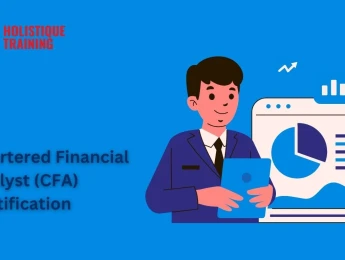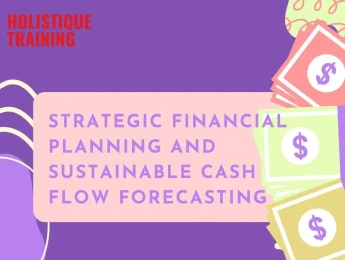Within any business, your finances are key in aiding growth, maintaining good products and services, and keeping employees happy. Your ability to plan strategically within a set budget allows you to keep generating profit to develop further but also gives a good indication to any stakeholders or partners when it comes to securing investments for a good return.
It’s important that each new project that you undertake is planned out financially so you can be confident that you will have the funds to see it through. Projects that don’t undergo a strict feasibility analysis, cost-benefit plan, and financial framework process may fail or fall at the first hurdle, potentially costing the company money without showing any return and leading to the company’s financial downturn.
As an individual responsible for the finances of a business and its projects, it’s essential that you understand how to create a strategic financial plan spanning into the future to predict financial and global economic change. You should also be able to present sensible financial plans to stakeholders, creating a viable journey map for the future using a flexible costing model.
Upon completion of this course, participants will be able to:
- Read and interpret financial information.
- Apply financial concepts to a viable strategic business plan.
- Identify areas of concern using a cost framework.
- Be creative with project plans to meet expectations within budget.
- Identify warning signs when finances are in danger.
- Recover from overspending and cutbacks without sacrificing service.
- Project a confident financial presentation to secure investments.
- Devise a plan to flag areas of concern.
- Understand balance sheets, invoicing processes and systems, and cash flow statements.
- Identify reliable data sources to enable accurate financial planning.
- Develop a working knowledge of Excel to create a financial planning framework.
This course would be suitable for anyone who aims to improve their knowledge and skills within the financial sector or is responsible for maintaining a contractual budget. It would be particularly beneficial for:
- Chief Financial Officers
- Business Owners
- Finance Professionals
- HR Executives
- Project Managers
- IT Resources
- Chief Operating officers
- Operations Managers
- Departmental Managers
- Commercial Managers
This course uses various learning methods, including presentations displaying accurate financial planning models and practical learning exercises with top-of-the-range financial planning tools, to help participants understand the most effective and efficient ways to plan change and development within a budget.
Participants will be encouraged to conduct group exercises to create a financial roadmap for planned change within their business areas while flagging up potential problems and creating contingency plans to mitigate service failures.
Day 5 of each course is reserved for a Q&A session, which may occur off-site. For 10-day courses, this also applies to day 10
Section 1: Getting Started - Roles & Responsibilities
- Your role as part of a finance team.
- Accounting, invoicing, and finance teams.
- Looking at ROI to involve stakeholders and increase funds.
- Identifying your key success factors.
- Planning around issues and problems.
- Practical economic analysis.
Section 2: Techniques for Stable Financial Planning
- Identifying a trend.
- EVA, RONA, and EBITDA and how to use them.
- CapEX - Capital expenditure and how to move forward.
- Corporate governance and the nature of financial statements.
- The use of Discounted Cash Flow (DCF).
- Pyramid ratio systems.
Section 3: Evaluation and Review of Statistics
- Financial performance metrics.
- Creating accounting assumptions.
- What constitutes valuable data?
- Obtaining industry data and measuring against the competition.
- Benchmarking your evaluation process.
Section 4: Managing a Budget Effectively
- Understanding your budget.
- Beneficial changes to make the most of your budget.
- The human element of budgeting.
- Creating value on a tight budget.
- Equivalent Annual Cost (EAC).
Section 5: Tools & Financial Frameworks
- Free cash flow (FCF) types.
- Alterman’s Z-Score.
- The DuPont analysis.
- Creating a scenario and sensitivity analysis and what these 2 things tell us.
- Net Present Value (NPV) and Internal Rate of Return (IRR).
- Modified Internal Rate of Return (MIRR).
- Simple Excel frameworks and budgeting building.
Section 6: Financial Decision-Making Against Contractual Requirements
- SWOT analysis and short-term decision-making.
- Strategy and aims against financial barriers.
- Implementing operational changes within a budget.
- Forecasting assumptions.
- Growth analysis against forecasting models.
Section 7: Assessment & Review of Business Performance
- Review against targets and contractual expectations.
- What’s working and what isn’t?
- Recovery based on overspending.
- Where to cut costs without creating a service detriment.
- Management Buy-Outs (MBOs) and Management Buy-Ins (MBIs).
- Generating a strategic pay model.
- Forecasting and budgeting for the future.
Upon successful completion of this training course, delegates will be awarded a Holistique Training Certificate of Completion. For those who attend and complete the online training course, a Holistique Training e-Certificate will be provided.
Holistique Training Certificates are accredited by the British Assessment Council (BAC) and The CPD Certification Service (CPD), and are certified under ISO 9001, ISO 21001, and ISO 29993 standards.
CPD credits for this course are granted by our Certificates and will be reflected on the Holistique Training Certificate of Completion. In accordance with the standards of The CPD Certification Service, one CPD credit is awarded per hour of course attendance. A maximum of 50 CPD credits can be claimed for any single course we currently offer.
- Course Code PF1-148
- Course Format Classroom, Online,
- Duration 5 days














